The Core Team
The Dam Removal Europe coalition is coordinated by the World Fish Migration Foundation which delivers the core team. This group of passionate people have the mission to make dam removal a viable tool for local river practitioners.
The Dam Removal Europe coalition is coordinated by the World Fish Migration Foundation which delivers the core team. This group of passionate people have the mission to make dam removal a viable tool for local river practitioners.
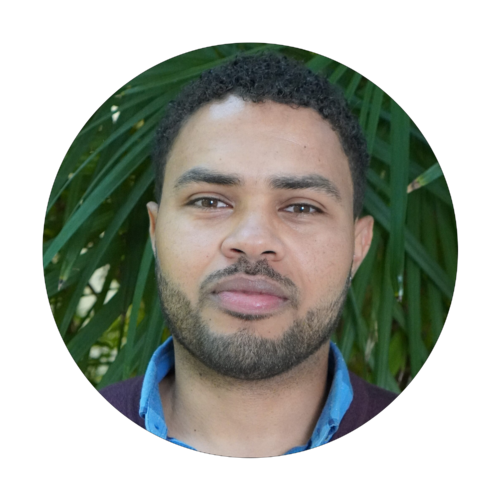
Why is dam removal important to you?
The impact of dams on ecosystems cannot be neglected, and the time to start the removal is now. Dams and other barriers are not permanent solutions to solve the problem related to water availability for different uses and to tackle water scarcity. Putting water in boxes (reservoirs) has a reverse effect, as it gives the idea of water availability, increasing the uses and reducing the real availability.
How do you hope to make a difference?
I have learned during my life that the big impacts are with the combination of many small ones. To help reconnect our rivers, I want to help people understand that every impact on nature will have an impact on us. On the other hand, every small effort they can do to revert the current situation will create a big wave of change.
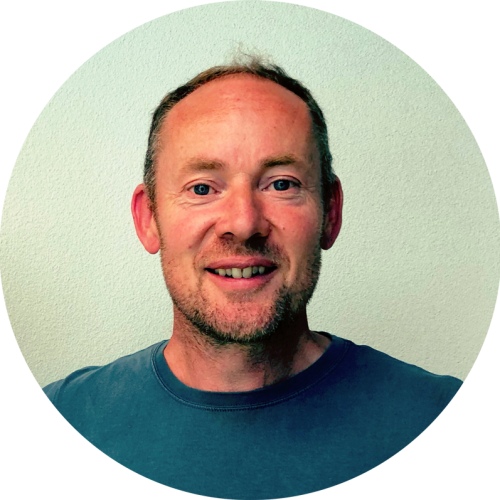
I got my inspiration to start Dam Removal Europe when I visited the USA from 2011 and visited the Elwha river dam removal project in the USA. It was so overwhelming that I thought: ‘we need something similar in Europe too'
Why is dam removal important to you?
It’s a viable measure to really make a difference for rivers and fish. The river becomes free-flowing and alive again! And I love free-flowing rivers!
How do you hope to make a difference?
By inspiring others, connecting, bring people together and that we all stand up and get activated to show that it’s possible to remove old and obsolete barriers and to start seeing dam removal as a viable option.
herman@fishmigration.org

Why is dam removal important to you?
Dam removal an exciting approach to river restoration. Removing the barrier and giving nature space and time to put things in order. Natural order. Much too often we just want to "manage" nature, we should first and for most - observe and learn.
How do you hope to make a difference?
Bringing people together, make network of practitioners, experts, authorities and NGOs stronger, more connected and lauder. For rivers, fish and communities that depend on them.
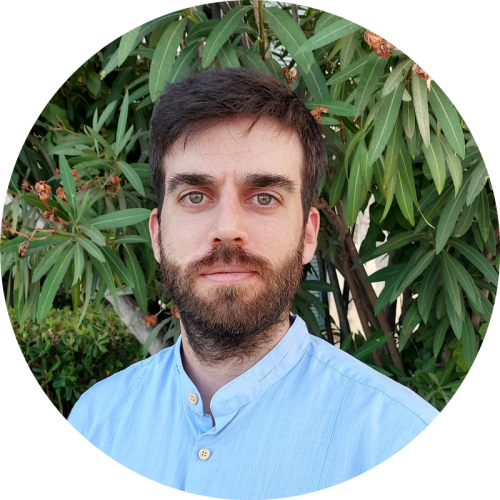
Why is dam removal important to you?
Have you ever come across this analogy: “Rivers are the veins of our planet and dams are blocking its circulatory system”? Well, I did a few years back, and it’s so accurate! Thus, I decided to do my part to keep our planet healthy.
How do you hope to make a difference?
Creating the first, as accurate as possible, database on dam removals in Europe will be the initial step and analyzing the data will be the second. The dissemination of the results will hopefully assist policy makers to improve the current legislations and the way they consider river management. At the same time, sharing this information with the public and showcasing unique dam removals will hopefully cause the barrier removal movement throughout Europe to boom!
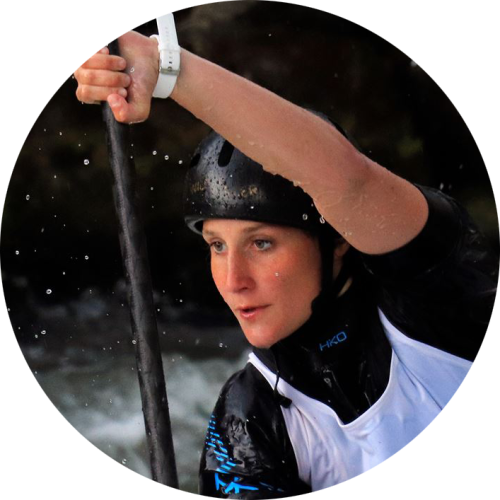
Why is dam removal important to you?
As a kayaker, rivers are our favourite playground! Not only dams are extremely dangerous for kayakers but they also destroy rapids and entire ecosystems.
How do you hope to make a difference?
By sharing successful stories of dam removals, I hope that people will understand to what extent our rivers are endangered and that removing dams is part of the process of healing waterways.
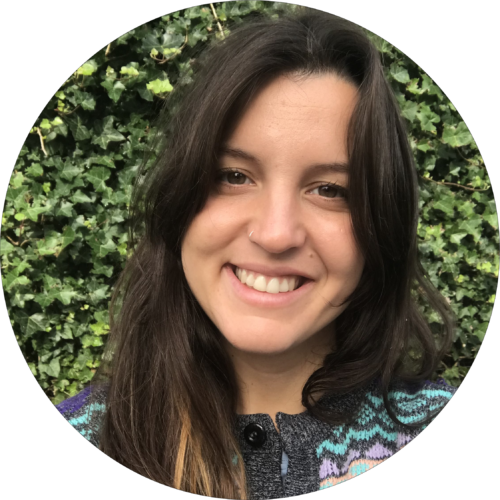
Why is dam removal important to you?
Dam removal is vitally important because it is about freeing our rivers, allowing nature to reclaim its course, and giving our communities the chance to thrive in a more sustainable and brighter future.
How do you hope to make a difference?
I firmly believe that driving environmental change hinges on river restoration, removing obstructive dams and ensuring unimpeded fish migration. This strategy is fundamental to promoting healthy aquatic ecosystems. My active participation in various projects underscores our shared dedication to Swimways improvement and river revitalization. With a global and united effort, this change can indeed become a reality.
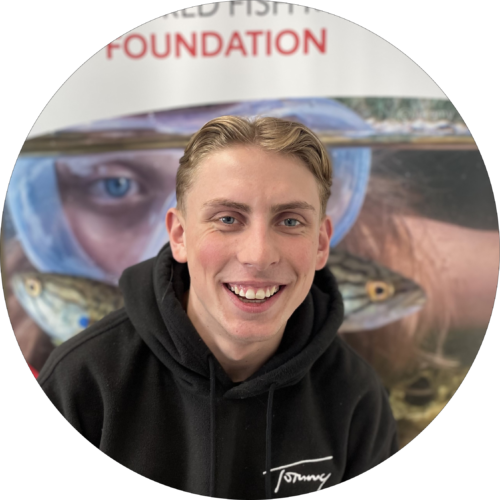
Why is dam removal important to you?
I am committed to the mission of Dam Removal Europe. I get to be a part of this journey by creating visuals and other digital content that share this story with the world.
How do you hope to make a difference?
In my role, I aim to make a difference by effectively conveying the message of Dam Removal Europe to a wider audience. Through creative design, I hope to educate, inspire, and grab the attention of people about the importance of dam removal. By making the information appealing through our website and visual materials, I aim to increase support and awareness for the cause, contributing to the foundations success in restoring our rivers!
Dam Removal Europe is a coalition of seven organisations: WWF, The Rivers Trust, The Nature Conservancy, the European Rivers Network, Rewilding Europe, Wetlands International, and the World Fish Migration Foundation.

I mainly use my experience and expertise as a river expert and communicator to create an efficient interface between politics, science and civil society.
As a result of a 10-year campaign, "Living Loire" for the preservation of the wild River Loire, I was able to play a key role in the realization of the first Europe-wide removals of large dams.
To promote international cooperation among NGOs, I founded the European Rivers Network (ERN), which today is linked to many stakeholders in the 50 most important river basins on the European continent.
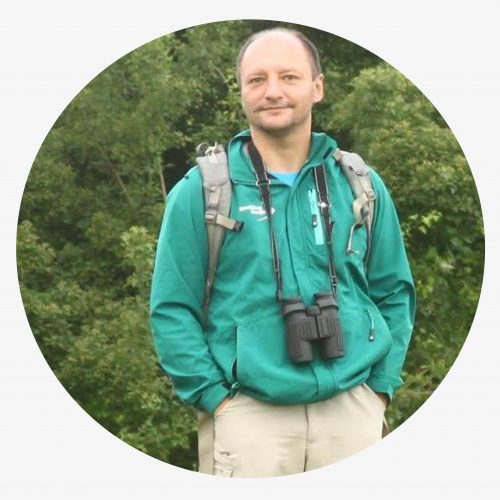

I have spent the past two decades at the intersection of conservation science, policy and communications in the US, EU and globally. Rivers run through my experiences – including the Hudson, Niger and Rhine. Before working at the global and European levels for Wetlands International, I spent more than a decade in Washington, DC as the Legislative Director for environmental champion and member of the US House of Representatives Maurice Hinchey and the Research Director at the League of Conservation Voters. I also have significant field experiences researching wetland-dependent species, from the Everglades in the US to the Bolivian Amazon, and for more than 15 years as a volunteer for the Delaware Bay Shorebird Monitoring Program in the US.
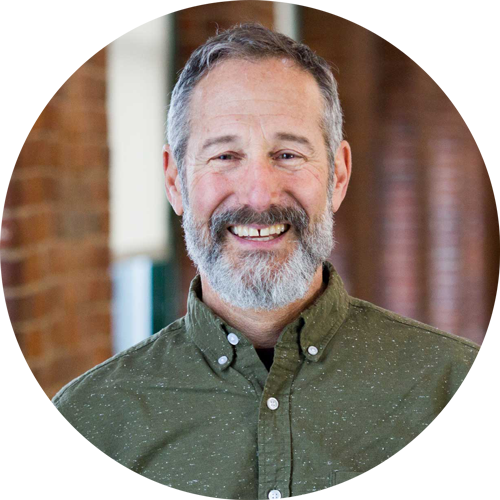
Joshua has led the work to restore river connectivity in Maine, opening some of the region's best habitat to native fish and other wildlife. His expertise also helps guide and promote river restoration globally as part of the World Fish Migration Foundation’s steering committee and as an advisor to the European Union’s AMBER and MERLIN Projects. A large portion of Joshua’s time is dedicated to helping TNC’s Europe Program develop their programs to protect and restore rivers, with an emphasis on the western Balkans in South East Europe.
He is co-author of numerous peer-reviewed papers and an co-author of the book From Sea to Source 2.0, describing why fish migrate, the impact of stream barriers, examples and techniques on how to fix them, and how to build greater awareness in society.
Joshua has a Bachelor of Arts degree from Bard College and a masters from Yale School of Forestry and Environmental Studies.
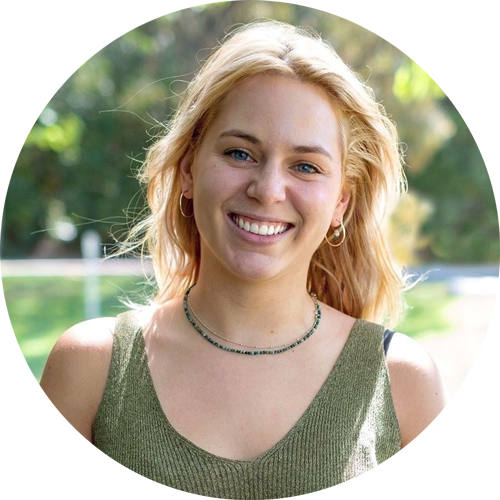
Passionate about working on the development and implementation of Freshwater related policies in Europe and beyond. Excited to see how the newly adopted Nature Restoration Law can lead to 25.000 km of Free-Flowing Rivers in Europe.
Prior to joining the Nature Conservancy in 2022, she was a Blue Book Trainee at the European Commission, in the Cabinet of Executive Vice-President Frans Timmermans.
Julia holds a double masters in Environmental Law (Vrije Universiteit Amsterdam) and Civil Law (Leiden University).
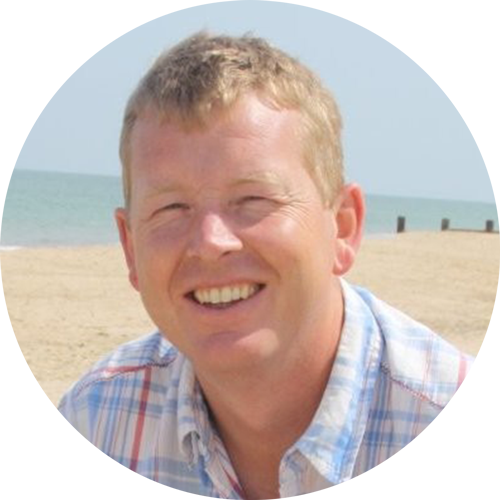
Understanding the problems is one thing, but it is vital that we use this knowledge to deliver action. I joined The Rivers Trust more than a decade ago to support the work of grass roots organisations restoring river catchments throughout the UK & Ireland. Since then, local Rivers Trusts and partners have delivered hundreds of dam removal projects, opening up thousands of kilometres of habitat, restoring natural processes and improving biodiversity.
However, despite all this work and the benefits provided, mainstreaming dam removal projects is still a major challenge with many legislative, financial, institutional, and social barriers preventing the scaling up of action. There are many thousands of barriers across the UK and Ireland and the problem is the same across most of Europe and the world.
Scaling up dam removal activity to the levels required to reverse decades of decline requires collaboration and coordination at local, national, and international scales. It is this that motivates me and my involvement with the Dam Removal Europe coalition.
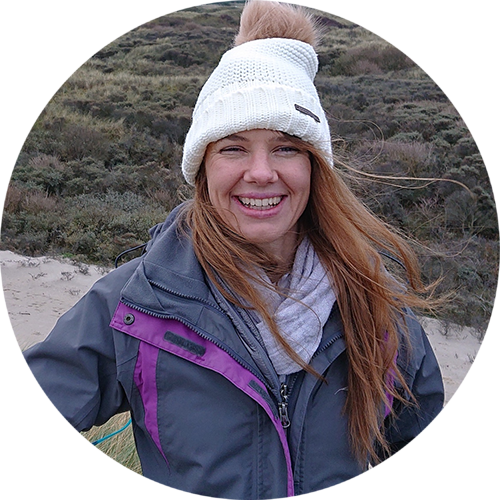
Dam busters contribute to Dam Removal Europe’s mission by finding dams that can be removed, conducting studies and promoting the dam removal movement.
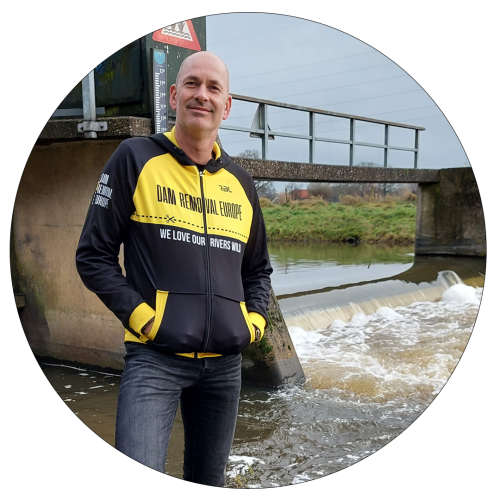
After my study environmantal chemistry I worked for some years in ecotoxicologie, I became aware how fragile ecosystems can be, what an impact small amounts of toxcicants can have. Now I am a labtechnician specialized in medicine and pesticide analyses in surface water at water researche laboratory Aqualysis in Zwolle. The quality of surfacewater is monitored off 5 regional water authoritys in the Netherlands, important for the aquatic ecology, the research contributes to the Europeen water-framework directive.
I was very lucky to join the WFMF at some projects abroad. In Sweden I was fascinated by salmon leaping out of the water of the Ätran River. The fish can swim up due to the construction of fish passages, beautiful. I think I can imagine how desperate fish can be if they want to spawn upstream but are not able to reach this point, all of them craving for a dam, smelling their partners, driven by the urge of sex. I was inspired by incredibly enthusiastic people who wanted to make the world a better place for the environment of fish with fish passages and free flowing rivers.
It is unbelievable what the WFMF has achieved so far, for example the organization of the World Fish Migration Day around the world. In a few years this has grown into a gigantic event with hundreds of locations. I am therefore grateful that I can participate as a volunteer at the foundation, in order to make people more aware of the importance of fish migration.
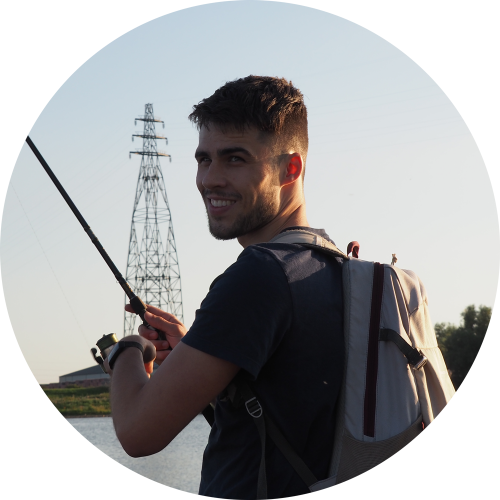
Growing up in the leading global region on high-tech facilities I considered nature as something that should never be taken for granted. At the same time I spent most of my younger days in or near water bodies, and I still do. My enthusiasm and passion for aquatic ecosystems and their inhabitants, especially fish, is something I want to share with the larger community.
Why is dam removal important to you?
Rivers are the blood supply for our ‘lungs of the earth’, forests. Hence, rivers form the basis for terrestrial life while at the same time being the infrastructure for aquatic migration routes for fish species to fulfil their life cycle. Roadblocks on these migration routes prevent these cycli to be fulfilled with far-reaching ecological consequences.
How do you hope to make a difference?
Aside from the story of the life-sustaining capabilities of rivers I want to strengthen the argument for dam removals with data visualizations. Make sure the larger audience is aware of the spatial scale of rivers that are affected by (obsolete) dams. In combination with ecological analysis this may enable us to pick out priority dam removal candidates that will allow for the recovery of dynamic river ecosystems.
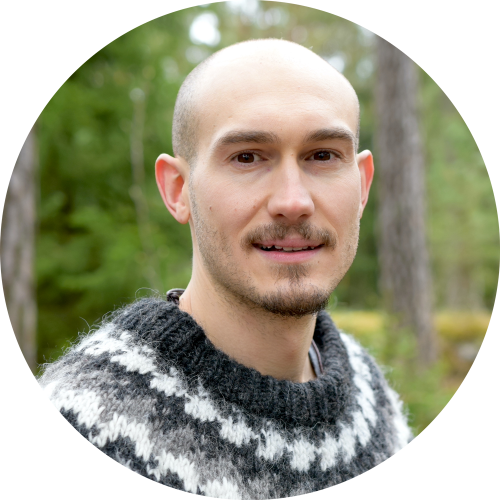
My passion for water is rooted to my childhood, to the Tagliamento river in northern Italy where I used to go to my grandparents for the summer holidays. Back in the days, I thought it was just a river, now I know it’s a very special one, the king of the Alps, one of the last of its kind! I remember the joy of swimming in pure clear water, playing with the stones and run around that huge riverbed. I believe that the purity of that place helped me to value nature and shaped who I am and what I do!
Why is dam removal important to you?
A river by definition flows. At the moment this fundamental characteristic is prevented by a barrier every kilometre of river in Europe. I think the removal of these structures is the only possible way to really give a chance to our river systems to thrive again.
How do you hope to make a difference?
I was really keen about becoming a research scientist, but now I realise that the problem we have is not getting more knowledge, but find ways to bridge the available one to the people out there. I hope to amplify the link between river management and the public, between dam removal and policy makers. I believe communication is the tool that has the power to unite these worlds to really make a difference!
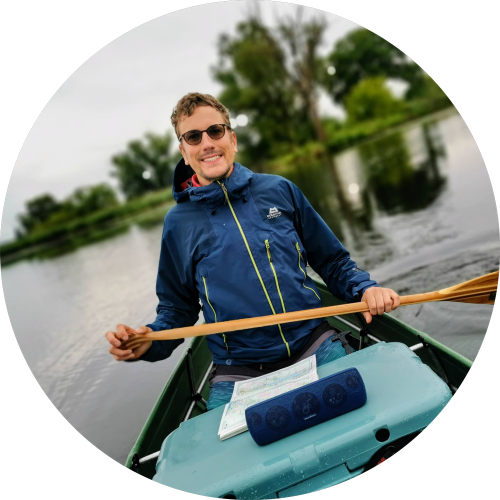
One day on a conference my PI pointed me to the foundation’s founder Herman and suggested I should talk to him. I knew the foundation but I didn’t know him, so I went over, introduced myself and told him I’d like to work for him. Which is basically how I ended up here. I find that pretty cool.
Why is dam removal important to you?
I know how important free-flowing rivers are for a healthy ecosystem, but exclusively working as a scientist didn’t do it for me in the long run – I needed to get more active in communicating our knowledge to the people and showcase the amazing work people are doing for our rivers all over Europe.
How do you hope to make a difference?
Bring in fish-ecological expertise and creativity and a hopefully useful go-to attitude.
Do you want to join the movement to restore free-flowing rivers?
Contact us